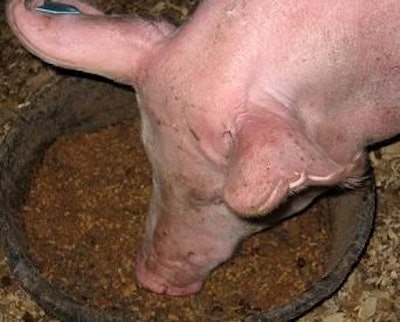
Consumers have never been more interested in food and agriculture than today, and one of those concerns is antibiotic use in livestock production, according to Chris Hodges, CEO of the National Pork Board. Speaking at Word Pork Expo on June 3 in Des Moines, Iowa, Hodges was part of a discussion on how pork producers have to prepare for the changes in antibiotic use mandated by the just-released Veterinary Feed Directive (VFD).
Hodges said antibiotic use in livestock production is not a new issue for NPPC. “We haven’t been standing still. What we’re talking about is improving pig health. Healthier pigs require fewer antibiotics.”
Dr. Jennifer Koeman, the National Pork Board director of producer and public health explained how the Veterinary Feed Directive will impact producers – especially small producers.
“Antibiotics are not going away, but how they are being used will change,” said Koeman. The 273 products added to the VFD list will require veterinarian directive for their use in feed. She said producers will have to be much more diligent in record keeping and will need to maintain a close relationship with a veterinarian. While large producers generally already have that relationship or even on-staff veterinarians, many small producers don’t have that existing relationship. Koeman said the VFD will go into effect at the end of 2016, so producers should start developing those relationships now.
Jarrod Sutton, the National Pork Board’s vice president of social responsibility, said the industry’s customers – meat retailers and food service companies – and the consumers are demanding higher standards and transparency.
“Our customers are on the front lines trying to answer these questions, with their focus on humane treatment, safe food, and low carbon footprint,” said Sutton. “We will be sharing this story in one-on-one meetings, at food shows, and talking about it more broadly with the consumer.” He said the National Pork Board’s goal is to instill confidence that the pork industry is ahead of the curve on this topic.

















